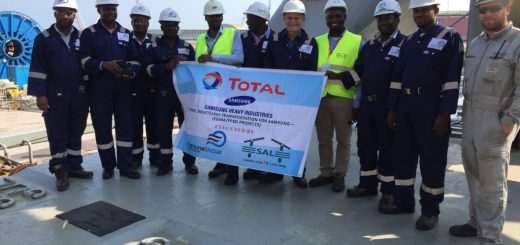10 Things To Know About Temporary Importation (TI) In Nigeria

What is Temporary Importation?
Temporary importation refers to the process of bringing goods into a country for a limited period of time without paying customs duties or taxes. The purpose of temporary importation is usually for business or personal use, such as attending a trade show, conducting repairs or maintenance, or participating in a sporting event. The imported goods must be re-exported within a specified timeframe, usually within six months or a year, to avoid paying customs duties and taxes. Temporary importation requires proper documentation and compliance with customs regulations to ensure smooth entry and exit of the goods.
Temporary Importation means goods that are temporarily imported into Nigeria for specific projects, with the intention to re-export same after a specific period. Permits are usually granted for an initial period of one year.
While it is common knowledge among experts and many industry stalwarts that the importation of project-bound equipment worth over $100,000 into the shores of Nigeria requires a Temporary Import Permit, the risk of not knowing when to apply for it, how to apply for it and above all the agent to engage to guarantee a hitch-free process remains a serious cause for concern. That is why engaging a freight forwarding agent who understands the intricacies of processing Temporary Import Permit and the A-Z of documentation requirements is key.
Having said that, in the interest of those who know little or nothing about Temporary Importation as a subject or those who already know but do not want to be complacent, here are ten things you must know about Temporary Importation (TI) in Nigeria:
What Can Be Temporarily Imported: Goods/equipment that can be temporarily imported include Oil rigs, vessels (ships), barges, heavy-duty cranes, aircraft and other heavy-duty project equipment whose values exceed $ 100,000.
Lease Agreement: Apart from documents like proforma invoices, equipment manual, registration certificates, covering letters, to Nigerian Customs and other statutory documents, Lease Agreement between the equipment owner and the Nigerian Importer must be submitted to Customs as well. The agreement specifies the lease period, the lease cost and the lease condition.
Formal Application for Temporary Import Permit: This is where the importer, through its designated agent issues a formal application to the Comptroller General’s office in Abuja for approval. The application is considered in tandem with other requirements before an approval letter is sent to the importer or importer’s designated agent.
Bond Security: Before a Temporary Import permit is secured by the importer or the importer’s agent on behalf of the importer, security for the Customs duty payable must be provided through a bond issued by Customs designated banks. That is why neither an insurance bond or a cash deposit is not accepted.
Extension of Temporary Import Permit: Temporary Import permits are usually granted for a period of one year; with possible extension of two for two tenures of six months each. That means after the first one year, it can be extended for another six months and an additional six months at the end of the first six-month extension. However, the maximum period approved for Temporary Importation is two years. Extension beyond this period can only be granted on a case by case basis only for a period of three or six months.
Re-exportation: At the end of projects for which equipment was temporarily imported, the importer or the importer’s agent on behalf of the importer commences formalities for the re-exportation of equipment either by air or sea. This will include the processing of the Export Bill of entry and bond cancellation documents.
Export Bill of Entry: The essence of completing the Bill of Entry, which is obtainable at the Customs office is to enable the Nigerian Customs Service to examine and release the equipment to ensure that the information provided is accurate. It serves as an authority to process and ship equipment.
Conversion for Home Use: If at the end of the approved permit period, the importer/equipment owner wants the equipment to remain in Nigeria permanently, approval to that effect must be secured from Customs Head Quarters in Abuja. In case you also intend to sell, the equipment to a third party in Nigeria, approval must be obtained, and Entry for Home Use processed with the Customs at the initial sea or airport of entry. Note that at this point, the original duty payable and the VAT applicable at the time of importation are fully paid before equipment conversion is approved.
Bond Cancellation: To cancel a Temporary Import bond, the equipment importer or the importers’ agent must show documentary evidence that the equipment has either been re-exported or converted for home use.
Fortune Global is well-positioned to resolve all your concerns in relation to the subject of Temporary Importation. For almost a decade now, Fortune Global has built a strong record of high performance in Temporary Import (TI) processing and management in major turnkey projects with high-profile clients in the Nigerian Oil & Gas, as well as Energy sectors.
Read more: Categories of Temporary Importation



